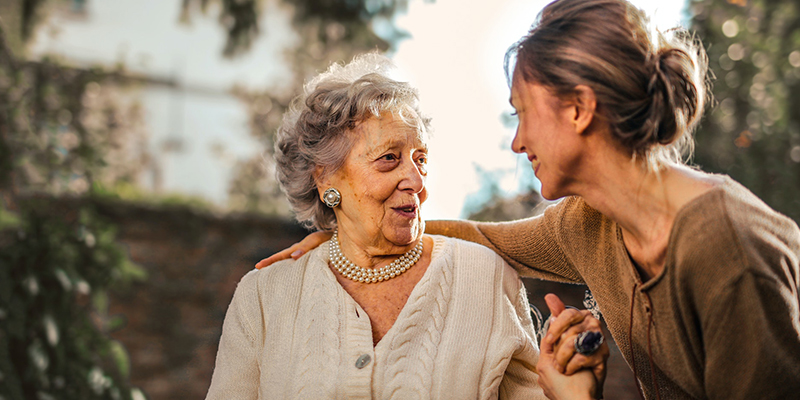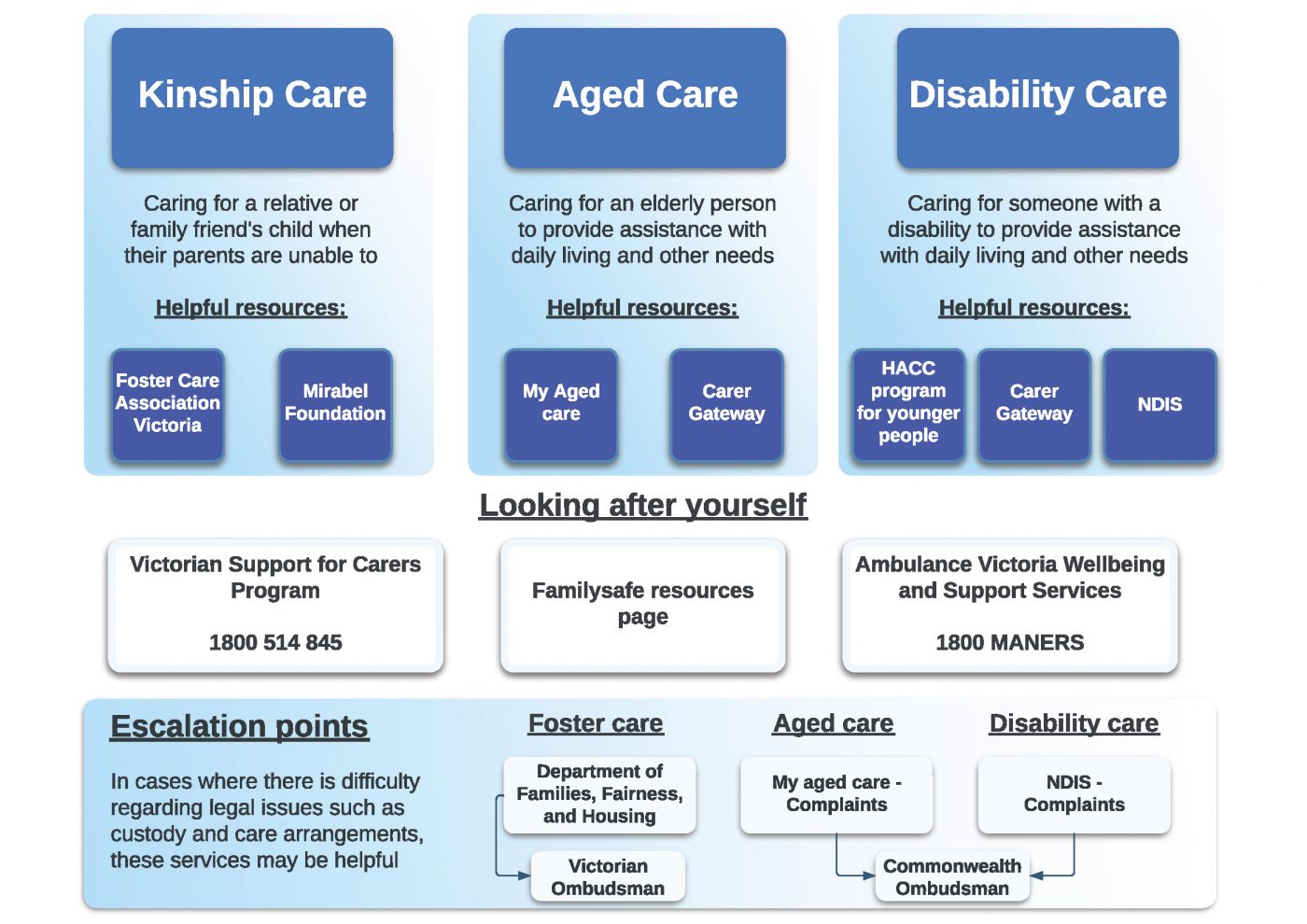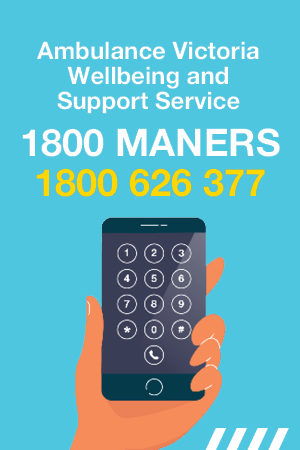Ambulance Victoria understands that becoming a carer can be a challenging and stressful time. The transition to providing support and care to others is not necessarily an easy one. It is likely that taking on a new caring role will affect an individual’s home and family life, along with their work and social life.
Prepare for the challenges of caring
Different types of caring roles come with different challenges to navigate. Understanding these challenges can help prepare you should they arise.
Kinship/Foster care
Care of a child from a relative/member of a child’s social network (kinship) or from a trained, assessed, accredited foster carer (foster care) when the child cannot live with their parents. Challenges may include:
- Notification for emergency kinship/foster care can be as little as one hour before the child is placed with their new carer
- Conflict may arise if the child’s parents are aggrieved by the change in care
- Children placed in kinship/foster care, may have experienced trauma, and require therapies/supports for their behaviours and emotional adjustment
- Legal issues may arise regarding custody and visitation rights with their parent(s)
- Difficulty developing an attachment with the child or adjusting when the child is no longer in your care
Support available/resources:
Foster Carer Association Victoria
- Peak body for foster carers in Victoria. They offer free independent advice and support to foster carers including workshops and education.
- Children’s charity organisation for families where parental illicit drug use has led to kinship care of the children.
Department of Families, Fairness and Housing
- The Victorian parliamentary department responsible for matters of child safety and kinship/carer arrangements.
- Non-profit organisation that can help resolve complaints about child protection services involving the Department of Families, Fairness, and Housing. Useful contact if escalation is required.
Aged care
Care for a relative, who, because of their elderly age, cannot fully take care of themselves. Challenges may include:
- Adjusting to the change in roles – e.g., from being cared for, to caring for
- Grief at your loved one’s change in functioning and anticipatory grief at their eventual passing
- Coordinating and attending medical appointments
Support available/resources:
- Government service that helps guide, support, and inform people in navigating the aged care system.
- Government program that provides information and free services and supports for carers. This particular page lists tips on caring for an elderly person.

Disability Care
Care for a relative, who, because of their disability, cannot fully take care of themselves. Challenges may include:
- Identifying different specialist support needs (e.g., Occupational Therapy)
- Facilitating quality of life for your loved one
- Managing behavioural and emotional problems that may arise from their disability
- Managing emotions that may come with thinking about what you and your loved one’s future may look like
Support available/resources:
HACCP program for young people
- Program involving services for people with a disability aged under 65 (or Aboriginal people aged under 50) to assist with living independently.
Carer gateway (disability care)
- Government program that provides information and free services and supports for carers. This particular page lists tips on caring for someone with a disability.
- National insurance scheme that assists with financial support for costs associated with disability.

General resources
- Statewide voice for family carers, representing and providing support to carers in Victoria.
Ambulance Victoria Wellbeing and Support Services
- Ambulance Victoria has many different support services that can help with managing the adjustment and ongoing general stresses of being a carer, including Peer support, Psychologists, and more.
Tip sheet: Becoming a Carer

